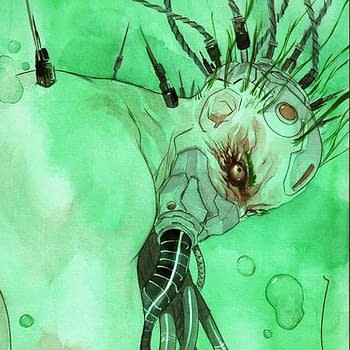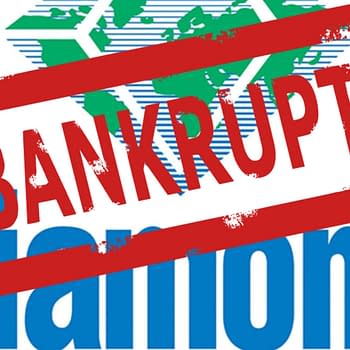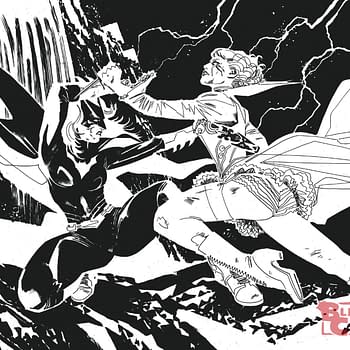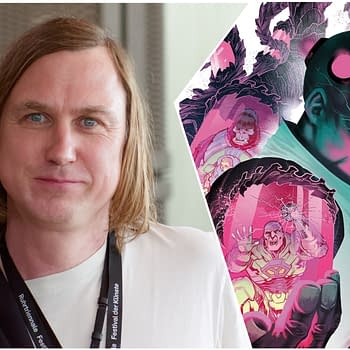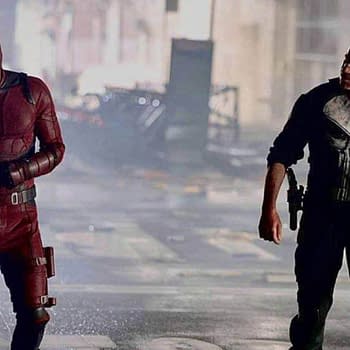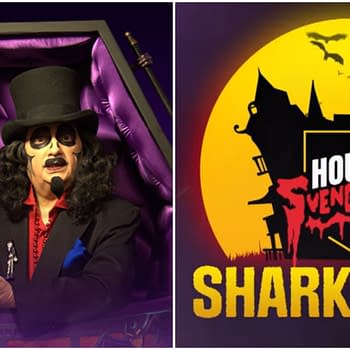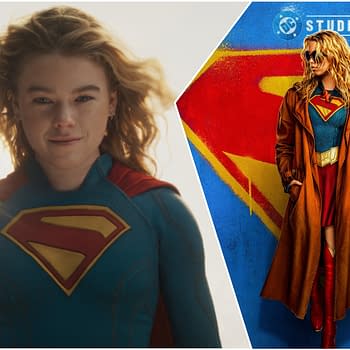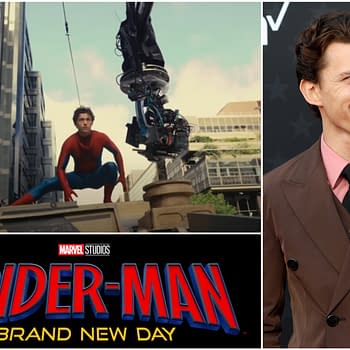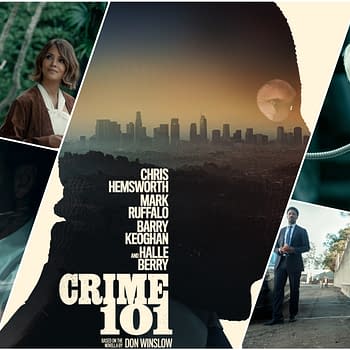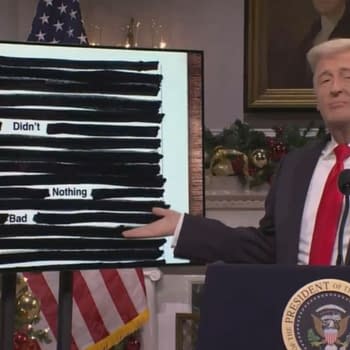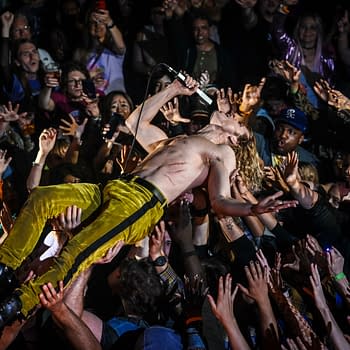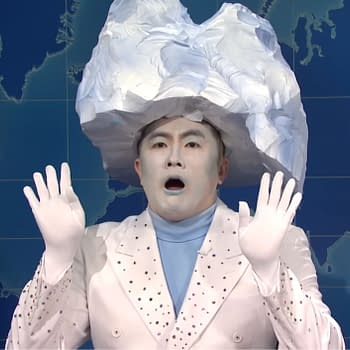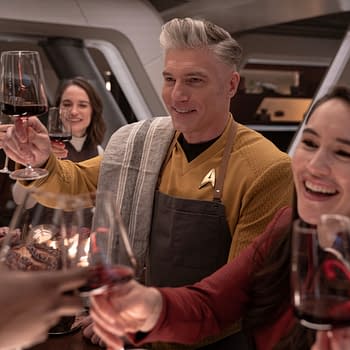Posted in: Movies, TV | Tagged: entertainment, HBO, true detective, tv
The True Fall of True Detective – Look! It Moves! by Adi Tantimedh
Adi Tantimedh writes,
So the second season of True Detective has been and gone, and it's been an interesting exercise in how a show can fall from public favour in the course of just one season.
There's probably been more column inches spent knocking the show as there were praising the first season. Reviews and tweets have been expressing confusion and disappointment in it after the focused, atmospheric first season with its mix of Lovecraftian cosmic horror, existential ruminations and hardboiled machismo. Viewer and critics seemed to be disappointed that the second season was… less so.
Were expectations too high? Was it due to too much hype? Both the media and social media seemed eager to elevate creator and writer Nic Pizzolato into another auteur in this age of serialised television as a bastion of deep and complex fiction, down to a cringe-inducing Vanity Fair profile where the interviewer worked embarrassingly hard to stick his tongue up as far up Pizzolato's arse as humanly possible.
The interview isn't Pizzolato's fault. He didn't tell the guy how to write it up, and it was during the period prior to the premiere of the new season that the network was making the usual PR campaign to push awareness of the show. It's more a symptom of media and celebrity culture's need for new idols, and then the current knocking of the show seems part of a cycle where the culture needs to knock down what it previously propped up. We've seen that happen to Lindsay Lohan and a long list of other celebrities, but this is the first time I've seen it done to a TV show, and only in its second season.
HBO and Pizzolato had already warned viewers beforehand that the second season was a straight-up cop thriller, not the gonzo cosmic horror-tinged head-trip of the first, and so far that has come to pass. Unfortunately that did nothing to stave off the disappointment viewers have felt. Maybe the disappointment also stems from the feeling that the central mystery and narrative feel more obscure this season. The murder victim is a corrupt money guy we never met before his body turned up and not someone we particularly care about. The lip service paid to a conspiracy involving money, property investments, and an unsolved robbery-and-murder feels like too much tell-not-show, and are far too abstract, like common plot tropes from the detective genre that were just strewn across the story rather carelessly. When gangster-protagonist Frank's henchman turns up murdered, we were hard-pressed to care because we couldn't even remember who he was. I'm sure the whole mystery and whodunnit had been plotted out beforehand, but they seemed to be withholding far too much of it for viewers to get a grasp on. The scripts feel like they could have used another two drafts before going into production.
Despite all that, it doesn't make the show a complete disaster creatively. It's actually still a perfectly adequate cop show. Maybe that's not enough for an upmarket cable show anymore. Many people have pointed out season two has actually been a serviceable adaptation – or rip-off, if you're feeling less charitable – of James Ellroy's crime fiction. Ellroy specialises in Los Angeles-based thrillers about flawed, angst-ridden and pathological cops seeking redemption who visit vengeful justice on evil men plotting vast conspiracies. Someone on Reddit even charted how much the main characters and plot trajectory of season two have been lifted straight from Ellroy's novel The Big Nowhere. There's also an attempt to replicate the surreal, dream-like menace of David Lynch in the show this season. This seems of a piece given that season one lifted from Lovecraft, Thomas Ligotti, From Hell, and even direct lines from Alan Moore and Gene Ha's Top Ten. I'm having a perfectly good time watching it. It's not going to change my life, but I don't expect a cop show to do that.
The thing about US network television is that it always had magpie tendencies, lifting plots and ideas from popular movies and books without acknowledging the original source. This goes all the way back to the 1970s and even earlier. Think about how many shows since the 1990s has had their Groundhog Day episode where the heroes were forced to relive the same day over and over again. To me, True Detective continues that tradition of lifting plots and ideas from classic and popular sources, only this time for what's supposed to be an upmarket show. You could argue that it's part of its postmodern aesthetic: a bricolage made up from pieces of other stories and movies to create its own whole. The only difference here is that season two has not been met with the viewing public's approval. Could it be that what they really want is what they loved in season one, the dark, mysterious, cosmic, existential horror that informed a murder mystery that blew open the audience's head to new spaces? Is the current disappointment that season two is just a cop show?
This throws up an interesting lesson for anyone looking to create and maintain a popular franchise. Once you establish a format, a story genre, an atmosphere, a theme that the audience falls in love with and latches onto, woe betide you if you decide to stop doing that. True Detective was supposed to be an anthology show: each new season would have a new setting, characters and story. It's loss in ratings and popularity seems to be down to not continuing what the audience loved in season one. After all, look at Ryan Murphy's American Horror Story, which established that anthology format three years before True Detective did. It managed to continue that same brief of over-the-top horror tropes, emotional melodrama, savage satire and left-leaning politics successfully in each new season without losing ratings or popularity.
If there's going to be a third season of True Detective, maybe it needs to bring back that layer of existential and cosmic horror. I would suggest another popular franchise for it to lift from:
Persona 4.
Why not? Hear me out. Persona 4 is a popular video game about a Scooby Gang of teenagers in a small town who investigate a series of killings that take place in a twilight world of shadows and cosmic horrors that lurk under the normal world. Along the way, they have to grapple with moral and existential dilemmas involving identity, sexuality, gender identity, depression and madness. And its main cast has over half a dozen heroes playing detective. That's rich pickings for a US network out to lift from popular pop culture sources. It could put True Detective back on the map, and since it's a video game, snobby TV critics and media pundits won't have heard about it and will happily rave about the originality of the new concept!
True Defective at lookitmoves@gmail.com
Follow the official LOOK! IT MOVES! twitter feed at http://twitter.com/lookitmoves for thoughts and snark on media and pop culture, stuff for future columns and stuff I may never spend a whole column writing about.
Look! It Moves! © Adisakdi Tantimedh










